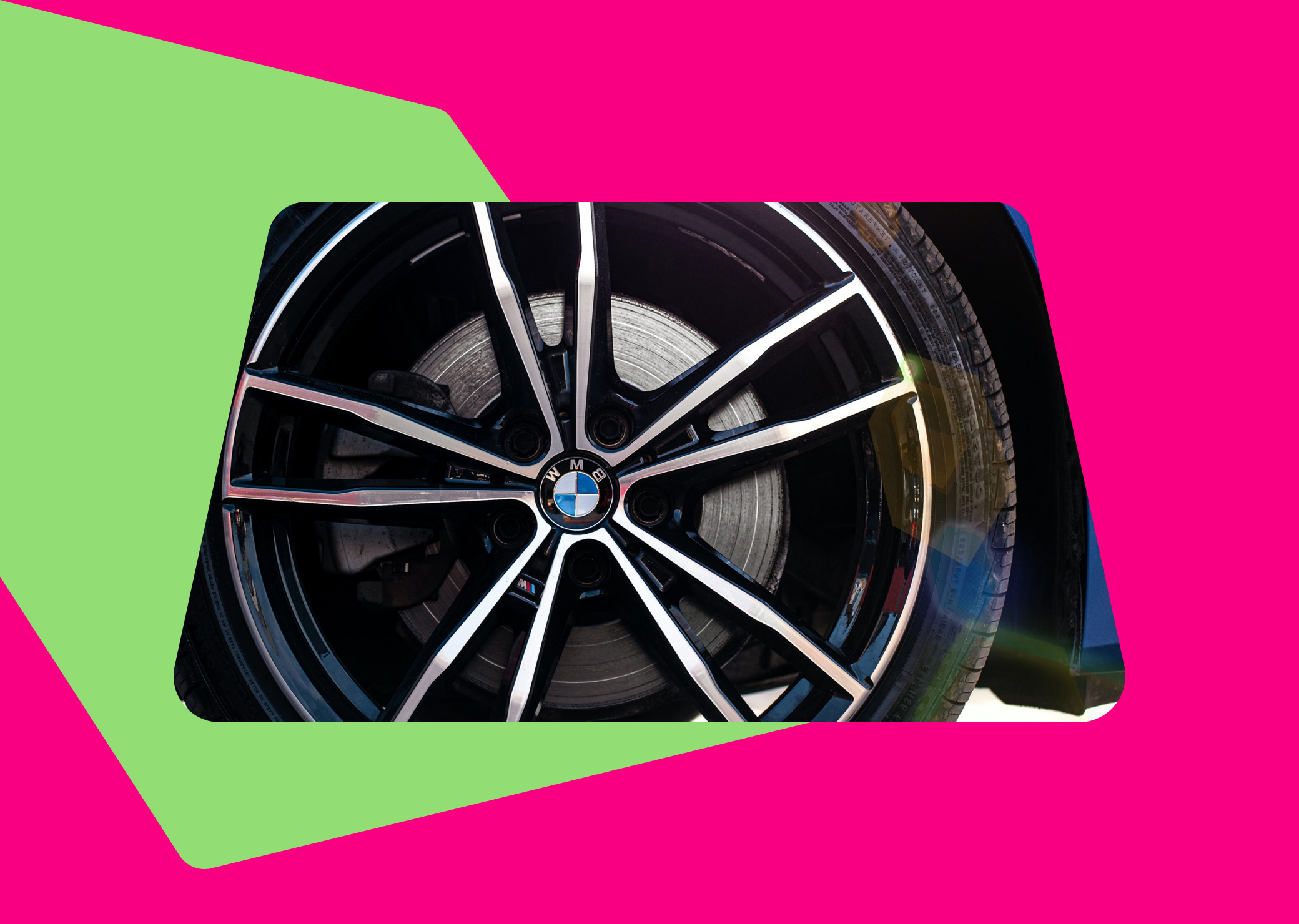- Carmoola
- Blog
- Car Finance
- Is GAP Insurance Worth it on a Used Car?
- 🗞 Car Finance
- Last updated: Dec 1, 2023
- 9 Min Read
Is GAP Insurance Worth it on a Used Car?
Written by

Verified by


See how much you can borrow in 60 seconds
| Representative Example | |
|---|---|
| Loan amount | £10,000 |
| Interest rate | 13.9% APR |
| 54 payments of | £246 |
| Total cost of credit | £3,284 |
| Option to purchase fee | £1 |
| Total payable | £13,285 |
Insurance and driving go hand in hand, but did you know there's more than one type of coverage available for your set of wheels? GAP insurance, otherwise known as Guaranteed Asset Protection insurance, is available for drivers to cover the different between the cash value of a vehicle and the balance still owed on its finance. But is GAP insurance worth it on a used car? We've got the answers below.
What is GAP insurance: a recap?
Again, GAP insurance covers the difference between the actual cash value of a vehicle and the amount you owe on any financing or lease deal the vehicle may be under. If a car is stolen or totalled, the owner's standard insurance will only pay for its current market value. GAP insurance helps to cover the "gap" between this payout and the remaining debt, protecting the owner from financial loss.
Check out this article for more on what GAP insurance is and how it works.
Should I Get Gap Insurance on a Second-Hand Car?
Getting GAP insurance on a second-hand car can be beneficial if you owe more on your loan or lease than the car is worth. Cars depreciate quickly, and second-hand cars are no exception. If your car is stolen or written off, your standard insurance will pay only the current market value of the car, which might be less than what you owe. In this situation, GAP insurance would cover the difference, protecting you from a financial loss.
What is the Average Car Depreciation in the UK?
In the UK, the average depreciation rate for new cars ranges between 15% and 35% within the first year. By the third year, this rate can escalate to as much as 60%. Generally speaking, a car is typically projected to lose about 15% of its value each year, throughout its 20-year lifespan.
The amount of depreciation valued can vary between dealerships, so it's worth making sure you find a reputable dealership when it's time to sell or trade in your vehicle.
How Will Depreciation Affect Your Insurance Pay Out?
Remember, your car insurance will only provide a payment known as the "maximum" or "total loss" equal to the car's worth at the time of the claim. This is if your vehicle is stolen or is irreparably damaged and written off as the result of an accident.
Due to the depreciation of your vehicle, this sum will probably be lower than what you paid when you purchased it, which means you may very well end up losing money. You'll need to come up with the additional funds on your own if you want to replace your car with a brand-new vehicle. Unless you have GAP insurance, that is.
Examples of How GAP Insurance Works
There are numerous real-world instances where GAP insurance has proven its worth. Here are a few scenarios:
Theft
Let's say you purchased a used car for £15,000 with a loan. Two years later, the car is stolen. Your insurance company assessed the value of the car at £10,000 at the time of the theft, leaving you with £5,000 still to pay on the loan. GAP insurance covers this outstanding amount, saving Sarah from the financial burden.
Accident
You lease a second-hand SUV. Unfortunately, a year into the lease, the car is involved in an accident that writes it off. The market value of the car at that time was significantly less than the remaining balance on the lease. Thanks to GAP insurance, you won't have to worry about this difference.
Rapid Depreciation
You buy a used luxury car with high depreciation. Within the first year, the car's value dropped dramatically. If you were involved in a collision that resulted in a total loss, the standard insurance payout would fall short of the loan balance. GAP insurance covers this shortfall, preventing you from incurring a significant financial loss.
These examples highlight the potential benefits of GAP insurance, especially in situations of theft, accidents or rapid depreciation. GAP coverage can provide necessary financial protection, particularly when dealing with used cars that may depreciate rapidly or unpredictably.
How Long Does GAP Insurance Last?
If you want to know how long is gap insurance good for, the most common term is three years, typically matching the length of most finance agreements. However, they range from two to five years, so you should shop for the best policy to match your needs and any finance you are taking out to buy the car.
How to Calculate if Gap Insurance Is Worth It
When purchasing a new car from a dealership, GAP insurance is frequently offered alongside. Although costs vary, you can expect to pay between £300 and £375 (at the time of writing) for up to three years of coverage. However, you can find much more affordable solutions online from GAP insurers and online insurance brokers.
The best bargains on GAP car insurance premiums frequently come with newer vehicles. Suppose your car is stolen or involved in an accident where it can't be repaired and must be written off. In that case, a Return to Invoice or RTI GAP insurance coverage will compensate for the difference between what your car insurance provider will pay you and what you initially paid for your car.
When isn't it Worth Taking out GAP Insurance on a Used Car?
Okay, so you know when GAP insurance is worth it on a second-hand car, but what about when you don't need this type of coverage? GAP insurance might not be worthwhile for a used car if ...
- You owe less on your car loan or lease than the car's actual cash value.
- You purchased the car outright without financing or leasing.
- You can comfortably afford to cover the "gap" between your car's value and the loan balance in case of a total loss.
- Your car is older and its rate of depreciation has significantly slowed.
- Your car insurance policy includes new car replacement coverage.
Is GAP Insurance Worth it on PCP?
PCP, otherwise known as personal contract purchase, is a form of car finance popular with motorists. You can find specialised GAP car insurance policies that bridge the gap between the complete loss, or maximum pay-out from car insurers, and the outstanding balances owed under finance agreements, like PCP (Personal Contract Purchase).
You can learn all the PCP car finance rules you need to know in our useful blog post.
GAP car insurance may be something to consider if you use a PCP contract to finance your car. The insurance reimbursement you receive through conventional insurance may not be enough to pay off your outstanding debt if your car, which you purchased with a loan agreement, is stolen or written off. If this is the case, you'll have to choose between making the remaining balance on your finance agreement or continuing to make your regular monthly payment on a car you don't use.
GAP car insurance will cover any discrepancy between your car insurance policy and the total balance due under your contract. You can then take care of any unpaid debt this way. GAP auto insurance is incredibly beneficial if your financing arrangement carries high-interest rates.
Read our complete guide to PCP car finance to learn everything you need to know.
Should I Get Gap Insurance on a Lease, and Is It Worth It?
Okay, so we've covered used cars and PCP, but what about leases? GAP insurance covers the difference between the car's value at the time of the loss and the balance still owing on the lease if your leased vehicle is deemed a total loss. The financial company for your chosen leasing contract won't require you to get GAP insurance. However, if you're concerned about getting charged more for the vehicle in the worst-case scenario during your agreement, it can provide you with additional peace of mind.
There are two primary coverage options for GAP insurance policies. First of all, there’s the most fundamental type of coverage, Finance/Contract Hire GAP insurance, which pays the difference between your auto insurer's settlement amount and the remaining finance balance payable for the leased vehicle.
Then, there’s the more expensive kind of coverage which is GAP insurance for vehicle replacement. In addition to paying off your lease car debt, it also covers the cost of a replacement car with the same specifications, mileage, and age as your old model.
Should you decide to get GAP insurance for your lease, generally speaking, it will cost you more if you buy direct from the dealership. But the good news is that they are no longer allowed to pressure you into buying a policy from them when you pick up your new car. You must be allowed time to shop around. This is great news for consumers, especially as some dealers have been known to charge over £300 more for a policy through them.
Of course the actual band of costs will depend on the value of your car, but expect to pay around £150 to £300 for an average car.
Mind the Gap
There is no clear-cut answer as to whether GAP insurance will be "worth it" for your used car. GAP insurance will be a helpful asset if you have a more relatively new used car and are financing it over a few years. In this scenario, GAP insurance would offer some much-needed financial assistance should your vehicle be deemed a total loss – especially if you still owe a significant amount of money when you file your claim, which is likely to happen.
Need more help with all things car-related? Browse the Carmoola blog today🚘 And if you want to find out more about how Carmoola has revolutionised car finance - see how it works and get your budget in 60 seconds!
See how much you can borrow in 60 seconds
| Representative Example | |
|---|---|
| Loan amount | £10,000 |
| Interest rate | 13.9% APR |
| 54 payments of | £246 |
| Total cost of credit | £3,284 |
| Option to purchase fee | £1 |
| Total payable | £13,285 |
Related articles
Can you drive in the UK on a foreign licence?
If you’re new to the UK, you might be keen to get behind the wheel to explore on the open road. You can usually drive in the UK...
What happens if my car is written off and it’s still on finance?
Accidents happen. When split-second decisions and challenging conditions make driving difficult at the best of times, even the...
Which credit reference agencies do lenders use?
When applying for car finance, your credit score can make a significant difference to the APR you’re offered, your repayment...

.webp?width=832&height=592&name=customer-support%20(1).webp)










.webp?width=400&height=285&name=online-shoppers-with-dog%20(1).webp)


.jpg?width=500&height=356&name=Vintage%20car%20going%20to%20an%20old%20town-1%20(1).jpg)





